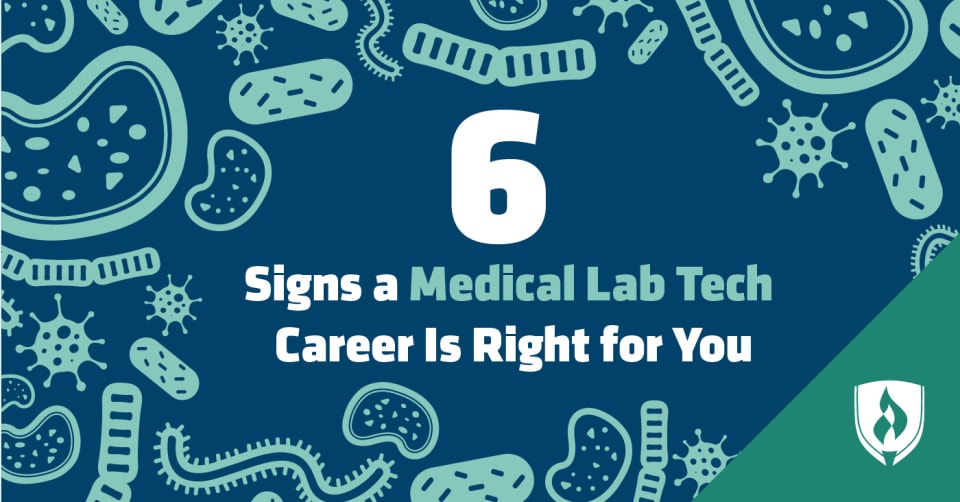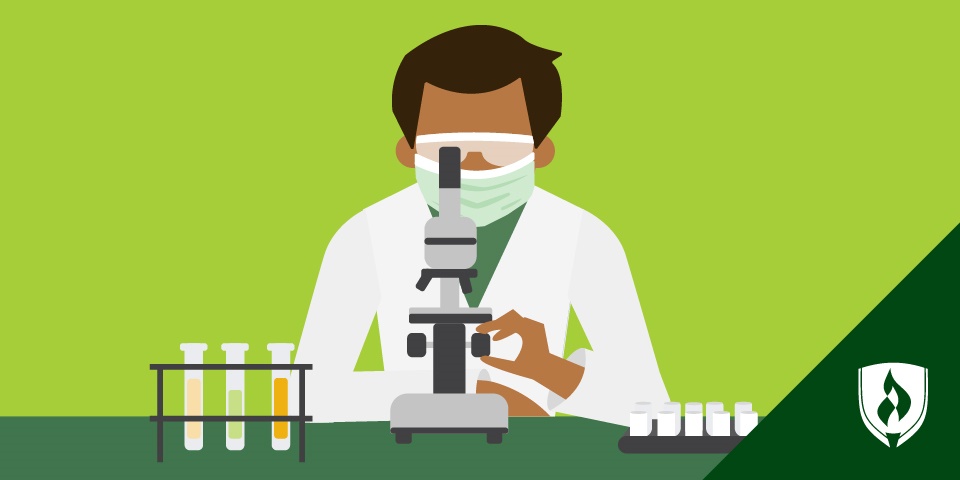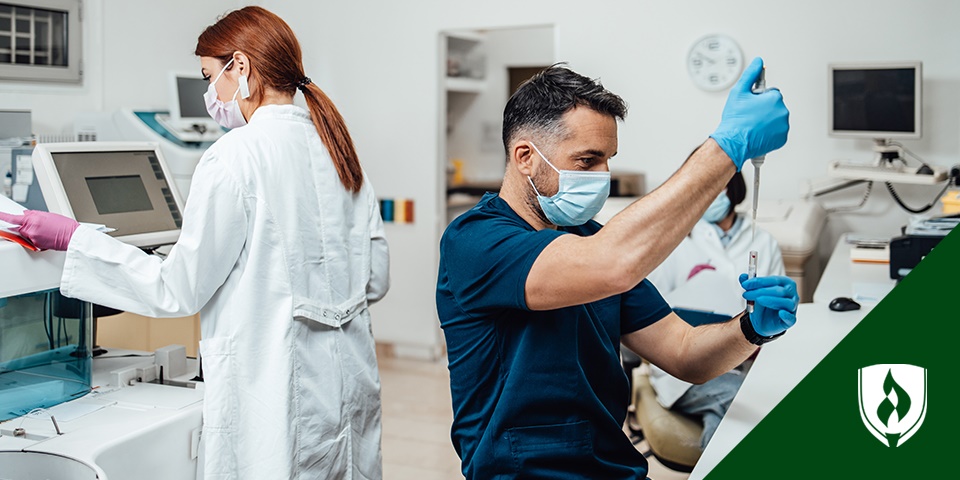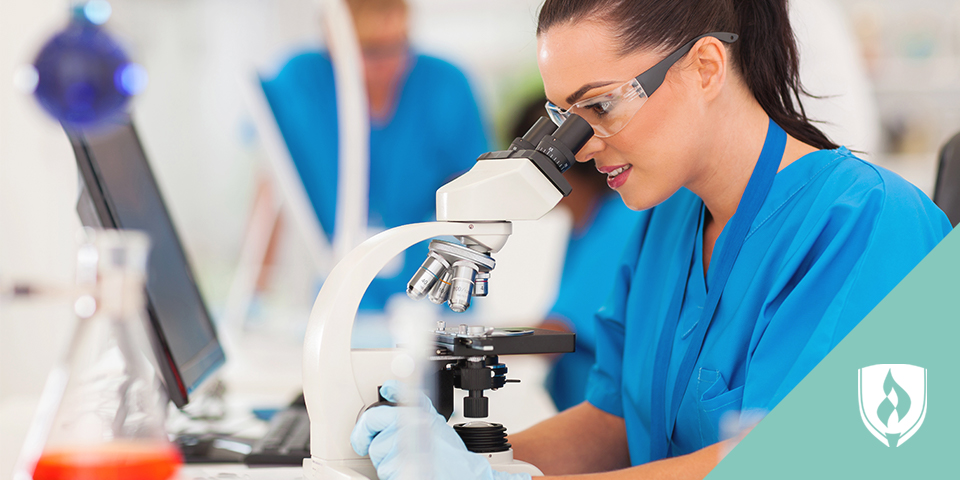
You’ve always been the type of person who takes a painstaking amount of time to make sure the details are correct and meticulously recorded. You’re a multitasking whiz who enjoys order and routine in your life. Wouldn’t it be great if you could find a career that capitalized on all of these characteristics?
FACT: MLT jobs are expected to increase 13% through 2026.
It’s important to make sure that your personality and natural gifts align with the profession you pursue. You’ll be happy to hear that a medical lab tech career might be right up your alley. This will allow you to join the fast-growing healthcare field while still getting to work a technical, behind-the-scenes job.
If this seems like an ideal option for you, then keep reading to see if you have what it takes to launch a successful medical lab tech (MLT) career.
6 Signs you’re cut out for a medical laboratory technician career
Want to figure out if working as a medical laboratory tech is a good job for you? We spoke with Tammy Renner, the Rasmussen University national MLT program director and 33-year medical lab veteran, to identify some common characteristics that the best MLTs share.
1. You’ve always loved science
MLTs usually have a strong background in chemistry, biology and physiology. Specifically, knowledge of tissues and cells is required, as is an expert understanding of chemical compositions and interactions.
If this kind of knowledge excites you, that’s a good sign you’d enjoy a medical lab tech career, according to Renner. She says most MLTs are fascinated in figuring out what type of organism has infected a patient and, more importantly, which antibiotic will help destroy it.
But don’t think you have to be a science whiz from the get-go. Your basic curiosity and a healthy desire to learn will help you acquire everything you need to know from your MLT course curriculum.
2. You’re extremely detail-oriented
Not everyone pays attention to the particulars. If you’re someone who values accuracy and thoroughness, then the medical community needs you. MLTs have to compile, categorize, code and calculate their findings to help doctors determine a diagnosis.
Missing the smallest detail could have big implications, as it could directly affect how the patient is treated. Complex problem solving and precise communication are also important characteristics of an MLT.
3. You don’t mind repetition
You appreciate routine and are able to stay focused in the midst of recurring tasks. An MLT’s daily duties may seem redundant, but they know the importance of their work and complete each test with the same amount of precision.
"We understand there is a life behind every sample we test."
“Each patient sample is treated individually,” Renner says. “We understand there is a life behind every sample we test.”
Renner adds that while the actions themselves may seem repetitious, many facilities allow MLTs to rotate through different departments within the lab. This variety helps keep things interesting.
4. You prefer working behind the scenes
Not everyone wants to be center stage, and that’s okay. You don’t have to be interacting with patients at the bedside all day long in order to make a difference. A medical lab tech career will allow you to play an integral role in the healthcare system without being in the spotlight.
“Lab professionals do have patient contact, but on a limited scale,” Renner explains. MLTs may draw blood, instruct patients on how to properly collect body fluid or conduct other bedside tests. Even so, the majority of their time is spent in a peaceful and secluded work environment.
5. You’re seeking a stable career
If security and stability are important to you—both in your life and in your career—look no further than an MLT career. Jobs for MLTs are projected to increase at a faster-than-average rate of 13 percent through 2026, according to the Bureau of Labor Statistics (BLS). As the population ages and medical issues arise in the elderly, this will lead to a greater need for MLTs to run tests to detect diseases such as type-2 diabetes or cancer.
Also, since more patients will be able to access healthcare as federal health legislation increases its availability, the need for MLTs will greatly increase. Changes like these indicate the future is bright in this field, so you can settle in for the long run.
6. You’re eager to enter the workforce
Many healthcare careers are notorious for the extensive education process. So how long is med lab tech school? Unlike becoming a surgeon or physical therapist, you can launch a medical lab tech career in fewer than two years. That’s right; some Medical Laboratory Technician Associate’s degree programs can be completed in as little as 21 months.*
This means you’ll be working with your microscope in the lab sooner.
Is a medical laboratory tech career in your future?
Can you relate to any of these characteristics? If you’re intrigued at the idea of pursuing a medical lab tech career, don’t stop examining.
Now that you know you’re a good fit for the field, learn more about the ins and outs of the job in our article, “What Does a Medical Laboratory Technician Do?”
*Completion time is dependent on transfer credits and courses completed each term.
AUTHOR’S NOTE: This article was originally published in April 2013. It has since been updated to include information relevant to 2018.




